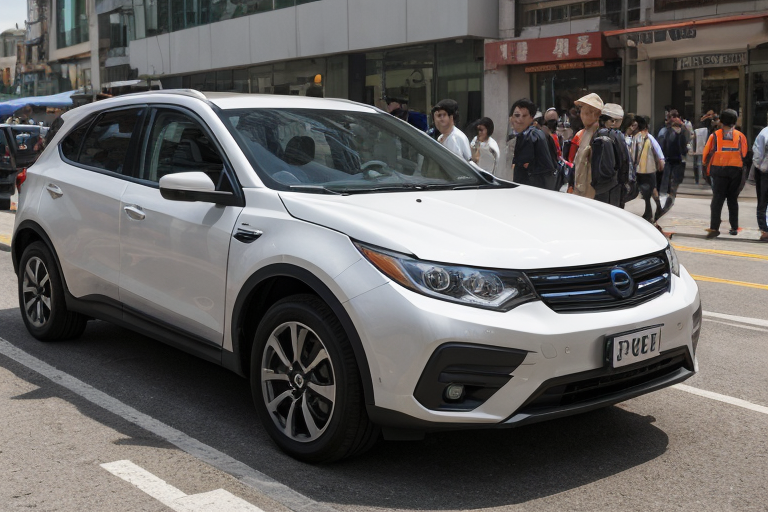Here’s a potential rewrite:
As Asia’s economies continue to thrive, there has been a significant shift in attitudes toward business relationships with China within the United States government. The Biden administration has maintained trade restrictions, such as tariffs on around $300 billion worth of Chinese goods, and passed major legislation aimed at relocating manufacturing and shifting supply chains away from Chinese influence. This trend is reflected in recent policies, such as President Biden signing the Inflation Reduction Act and the CHIPS and Science Act, both of which contain substantial subsidies for electric vehicle manufacturing and clean technology. In contrast, during his presidency, former President Trump took a more hostile stance against business ties with China.
Meanwhile, in response to the new trade barriers being imposed by the US and Europe, Chinese electric vehicle (EV) manufacturer Zeekr successfully completed the largest initial public offering (IPO) by a Chinese company in the US since 2021. Despite the unfavorable circumstances, the company managed to raise $441 million by selling 21 million American depositary shares at $21 apiece, which is the highest possible price point. This move follows a period of tense US-China relations and stringent cross-border listing requirements that effectively halted the IPO pipeline for Chinese companies. Nevertheless, analysts suggest that market conditions have improved for Chinese offshore equities this year, with several upcoming Chinese EV IPOs also planned.
However, despite the positive reception to Zeekr’s IPO, many Chinese automobile companies operating in Europe and the US face an uncertain outlook. Government officials in both regions are grappling with competing priorities – the necessity of importing more Chinese technology to address climate change concerns versus the need to block such technology on national and economic security grounds. In China, the EV sector continues to exhibit impressive growth, with EV and plug-in hybrid sales increasing by over 30% in the first four months of the year alone. Nonetheless, the industry remains fiercely competitive, and investors are increasingly demanding lower valuations due to the intensifying competition and slowing EV penetration in Europe and the US.
Another Chinese EV firm, Horizon Robotics, has submitted IPO filings to the Hong Kong stock exchange this year. Meanwhile, CATL, the largest producer of EV batteries worldwide, is gradually progressing with a share sale in Hong Kong, intending to welcome its clients as stakeholders. The three Chinese EV start-ups, Xpeng, Li Auto, and Nio, have experienced mixed fortunes since their respective listings. While Li Auto’s shares have risen by 66%, Xpeng and Nio’s stocks remain below their IPO values.
Despite this, analysts believe that the improved sentiments surrounding Chinese offshore equities this year, coupled with the strong demand for Chinese companies involved in growth sectors, should result in better prospects for forthcoming Chinese EV IPOs. “Given the improving sentiment, the appetite and demand for Chinese IPOs in growth industries should be better than before,” said Jerry Wu, a lead fund manager at Polar Capital China Stars Fund.
However, the successful Zeekr IPO, along with the upcoming Chinese EV IPOs, may indicate that investors are accepting lower valuations due to heightened competition in China’s auto market and slower EV penetration rates in Europe and the US. Furthermore, analysts have raised questions regarding Geely’s strategy of funding various businesses via public markets given the low valuations, especially given the significant capital required for electric cars, autonomous driving technologies, and software development in the near future. Geely refused to comment on these issues.
In summary, while China’s EV manufacturers appear poised for continued growth, the ongoing geopolitical tensions between China and the US, as well as Europe, pose considerable uncertainties regarding the future of Chinese automobile companies operating overseas. As the situation evolves, investors must carefully evaluate the risks and rewards associated with investing in these companies.



Leave a Reply